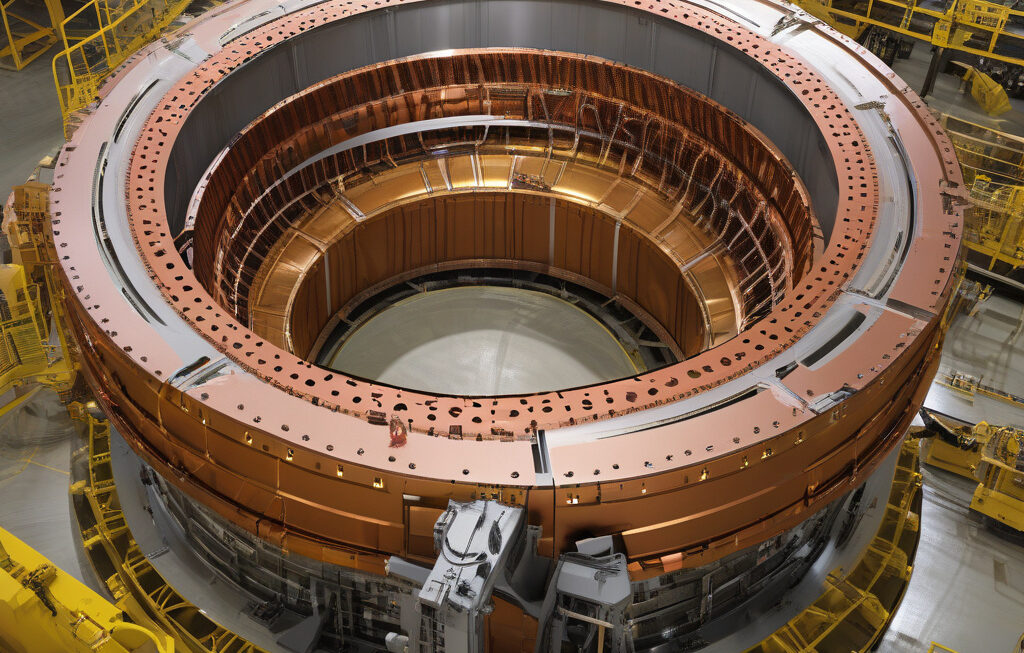Google and Elementl Support 1800 MW Nuclear Power Project for US Data Centers
The United States is accelerating its efforts to deploy an estimated 1800 megawatts (MW) of nuclear power capacity to support the ever-growing demand for energy in the tech industry. Google, a pioneer in sustainable practices, and Elementl, a company focused on innovative solutions, have joined forces to back this ambitious project aimed at powering data centers responsibly and efficiently.
Data centers are the backbone of the digital world, supporting everything from email services to streaming platforms. As the demand for online services continues to surge, so does the need for reliable and sustainable sources of energy to keep these data centers running smoothly. Traditional sources of power, such as coal and natural gas, are not only environmentally harmful but also limited in supply. This is where nuclear power comes into play as a clean and reliable alternative that can meet the energy demands of the future.
Google, known for its commitment to carbon neutrality, has been at the forefront of the tech industry’s efforts to reduce its carbon footprint. By supporting the development of nuclear power projects, Google is taking a proactive stance in ensuring that its data centers are powered by clean energy sources. This aligns with Google’s broader goal of operating on 24/7 carbon-free energy by 2030, a target that requires innovative solutions and strategic partnerships.
Elementl, a key player in the energy sector, brings its expertise in project development and execution to the table. By collaborating with Google on this nuclear power initiative, Elementl is demonstrating its commitment to driving sustainable energy solutions that benefit both the environment and the economy. The partnership between Google and Elementl highlights the importance of cross-industry collaboration in tackling complex challenges such as energy sustainability.
Nuclear power has long been a contentious issue, with concerns about safety, waste management, and cost often overshadowing its potential benefits. However, advancements in nuclear technology have made modern reactors safer and more efficient than ever before. By leveraging these technological advancements, the 1800 MW nuclear power project supported by Google and Elementl has the potential to set a new standard for clean energy production in the United States.
In addition to powering data centers, nuclear energy can also play a crucial role in decarbonizing other industries such as transportation and manufacturing. The versatility of nuclear power makes it a valuable asset in the transition to a low-carbon economy, where reducing greenhouse gas emissions is paramount. By investing in nuclear energy infrastructure, Google and Elementl are not only securing a sustainable future for their operations but also contributing to the broader goal of combating climate change.
As the 1800 MW nuclear power project gains momentum, it serves as a testament to the power of collaboration and innovation in driving positive change. By bringing together the tech expertise of Google and the energy know-how of Elementl, this project exemplifies how different industries can work together to achieve shared sustainability goals. The success of this venture will not only benefit the companies involved but also set a precedent for future partnerships in the clean energy sector.
In conclusion, the support of Google and Elementl for the 1800 MW nuclear power project marks a significant milestone in the journey towards a more sustainable energy future. By harnessing the potential of nuclear power to meet the energy needs of data centers, these companies are setting a positive example for the tech industry and beyond. As the project moves forward, it will be essential to monitor its progress and impact, with the hope that it will inspire similar initiatives in the quest for a cleaner, greener planet.
Google, Elementl, nuclear power, data centers, sustainability.












